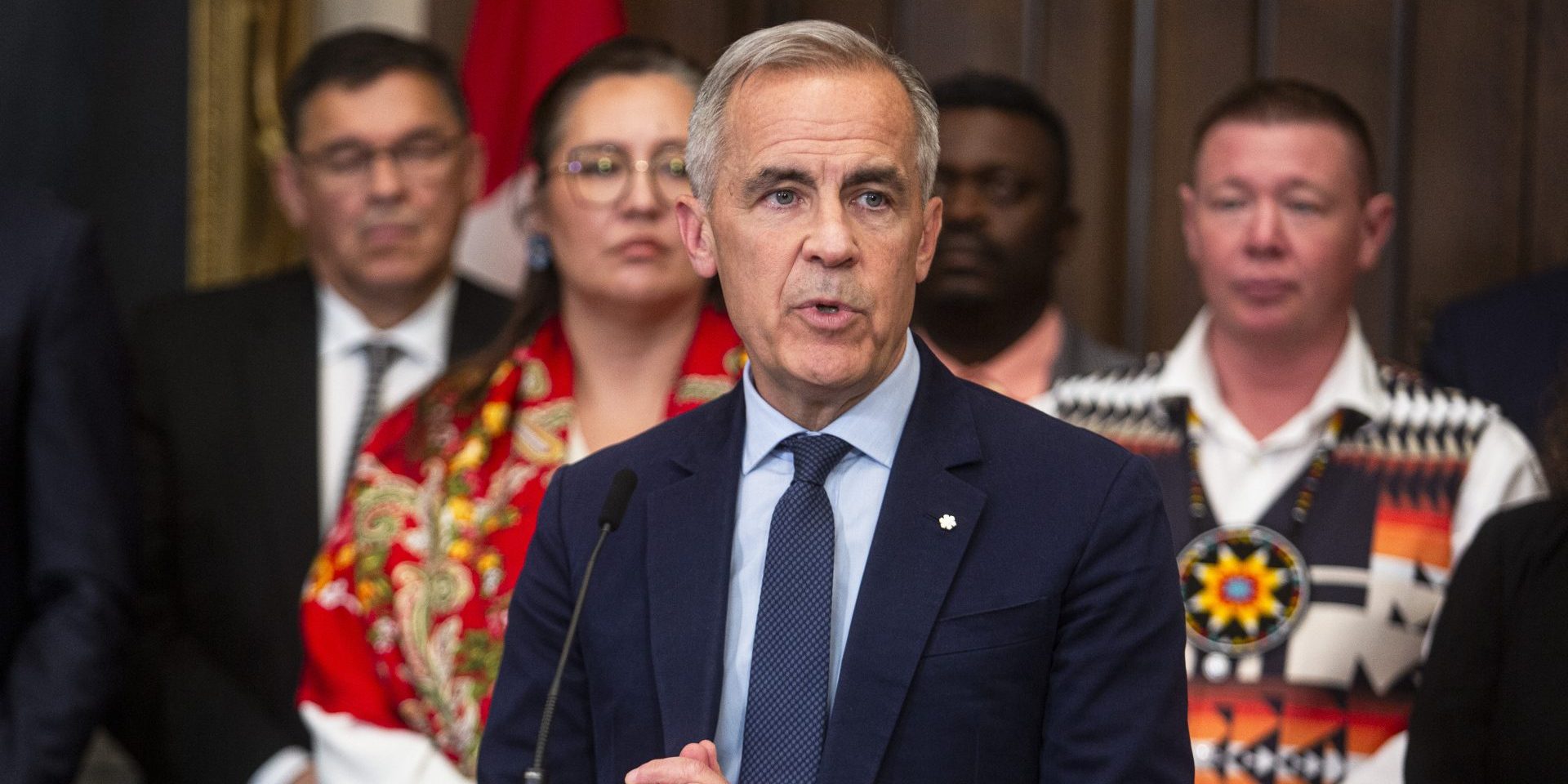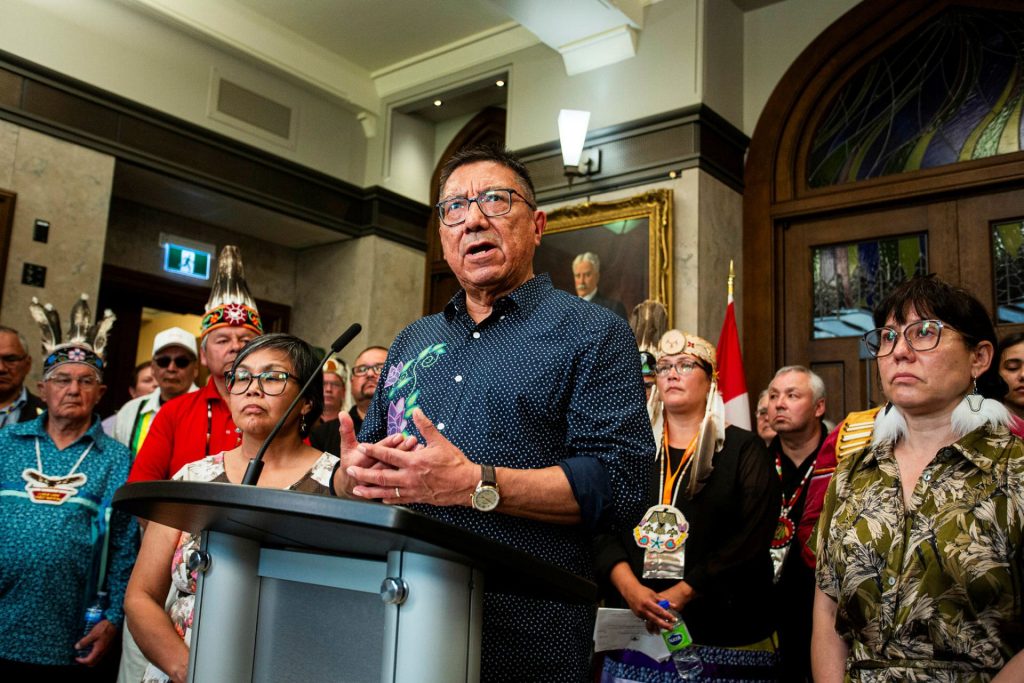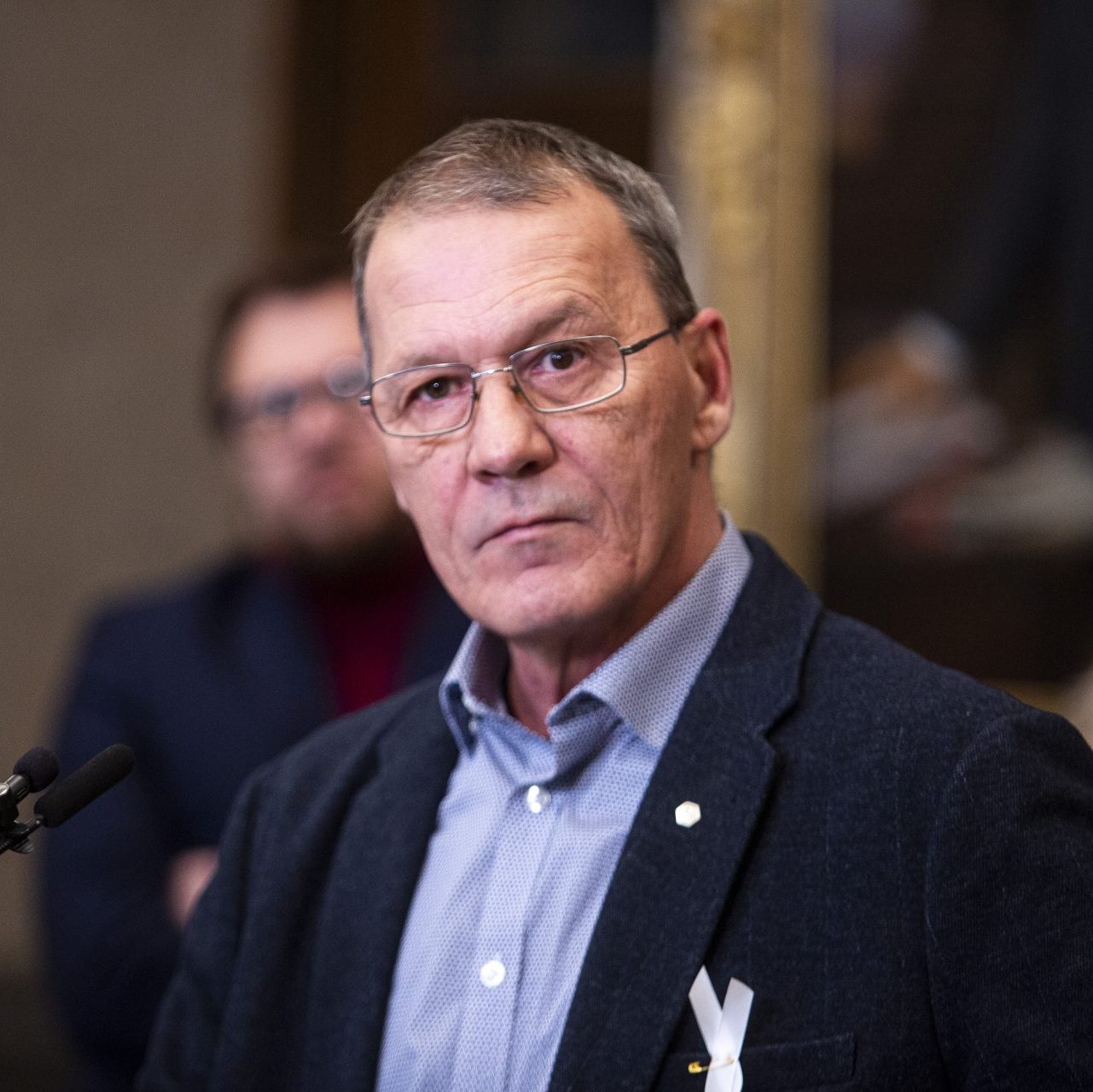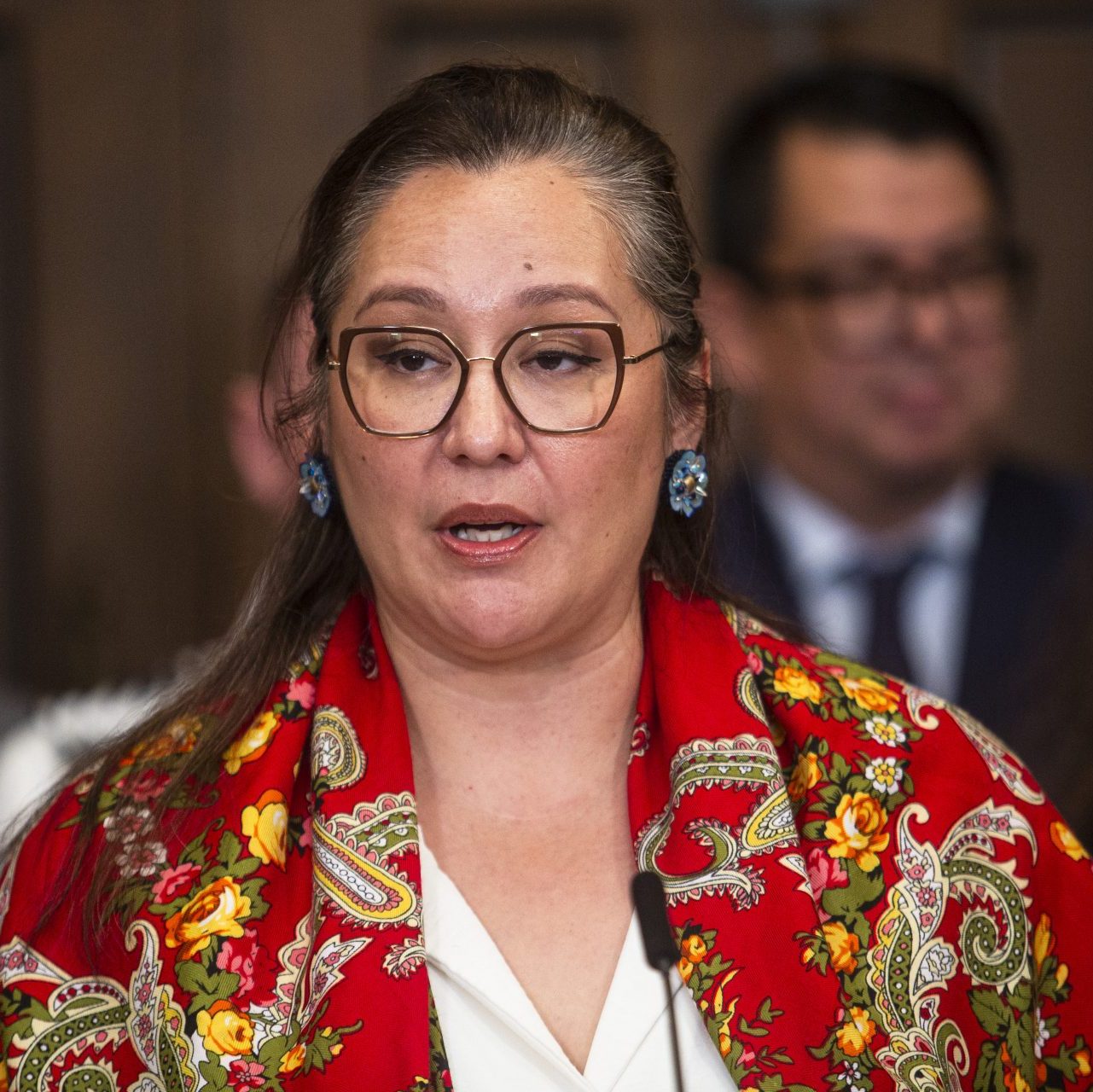‘Action, not words’ needed to cool potential long, hot One Canadian protest summer, says Liberal strategist

Prime Minister Mark Carney is attempting to lower the temperature ahead of a potential “long, hot summer” of renewed Idle No More protests over the Liberals’ marquee One Canadian Economy Act, but repairing the relationship with First Nations and re-committing to “the spirit of free prior and informed consent” requires actions not words, says Liberal strategist and ex-staffer Olivier Cullen.
As the Liberals’ Bill C-5 speeds through the Parliament with no signs of slowing down as it enters the Senate this week, Prime Minister Mark Carney’s (Nepean, Ont.) focus on expediting “national interest” projects is causing friction with Indigenous Peoples with whom his party has spent the better part of a decade working toward reconciliation.
During a press conference in the House of Commons foyer on June 17 organized by the Chiefs of Ontario, which represents 133 First Nations in the province, Nishnawbe Aski First Nation Grand Chief Alvin Fiddler said Bill C-5 does not fulfill the government’s constitutional obligations to Indigenous Peoples.
The One Canadian Economy Act includes two parts. The first aims to eliminate interprovincial trade barriers and establish free trade inside Canada, while the second—the Building Canada Act—gives cabinet broad powers to approve and fast-track infrastructure and energy projects if they are deemed to be in the “national interest.” Those projects would be assessed based on five criteria, including whether they will boost Canada’s economy, strengthen its “autonomy, resilience, and security,” contribute to “clean growth,” and “advance the interests of Indigenous peoples.”

“If you pass this Bill C-5, it will be a long, hot summer,” Fiddler said on June 17. “We will not sit idly by and watch any government, whether it’s Ontario or Canada, come to our territory and take whatever they want, because it is ours.”
Alongside a simultaneous protest on Parliament Hill’s front lawn, which drew more than 300 people from those First Nations, Fiddler’s warnings were echoed by Kebaowek First Nation Chief Lance Haymond during the bill’s marathon one-day clause-by-clause study at the House Transport, Infrastructure, and Communities committee on June 20. Haymond said “the process that led to Bill C-5 is a case study in how not to engage with Indigenous nations.”
“The conditions for an Idle No More 2.0 uprising are being written into the law as we speak,” Haymond told the committee during the last round of witness testimony.

Grand Chief of the Treaty 8 First Nations of Alberta Trevor Mercredi told the committee that “the last thing we want to do is hold up industry and projects with court cases.” But given the lack of prior consultation, “this is exactly where it’s headed,” he said.
While the bill passed through the committee largely unchanged, it was amended by MPs to ensure it could not override laws like the Indian Act, the Canada Labour Code, and the Criminal Code, and to require the government to publish the conditions of project approval. However, most environmental laws can still be circumvented.
In an interview with The Hill Times on June 19, Fiddler said that by passing the bill despite the protests, press conferences, and committee testimony, the government has sent the signal that “even if they heard the message, they did not listen.”
“They’ve heard the message loud and clear, but they’re still adamant about following through with this process. It’s very disappointing,” Fiddler said.
Fiddler said that while former prime minister Justin Trudeau may not have accomplished everything he set out to do, “he made the effort to build a respectful relationship with First Nations that was based on trust and mutual respect.”
“The actions of Carney’s government on C-5 are a huge step backward in that relationship,” Fiddler said. “The trust and respect that’s been built over some time is pretty much gone.”
Carney has attempted to emphasize the importance of Indigenous consultation and consent for projects to move forward, and sought to make that message more explicit following the bill’s passage at third reading last week.
“These projects will build our national economy—and through Indigenous equity and resource management, these projects will be built with Indigenous nations and communities,” Carney told reporters at a June 20 press conference in the House foyer. “This is not an aspiration. It is the plan embedded in the bill itself.”
During the press conference, Carney also emphasized that Indigenous communities will be meaningfully consulted when determining projects of national interest and developing the conditions for each project, and that the legislation would “be in alignment with UNDRIP [the United Nations Declaration on the Rights of Indigenous Peoples] and therefore respect the principle of free, prior, and informed consent.”
“It’s the right thing to do,” Carney said, adding that to “build trust and build shared leadership … the first thing we will do to launch the implementation of this legislation in the right way is through full-day summits with First Nations, Inuit, and Métis rights holders, leadership, and experts.”
Carney announced that he, “responsible ministers,” and public servants would hold the first of those meetings in Ottawa with First Nations rights holders on July 17. Inuit leaders would follow later that month, and Métis leadership “soon thereafter,” Carney said.
“First Nations, Inuit, and Métis peoples know the best steps to take for the future of their communities and what meaningful consultation means for their lands,” Carney said.

However, when asked whether he would provide the same assurances as the provinces have been given in the legislation that if they oppose a project that needs their territory or their resources, a “no” will be a full sentence, Carney didn’t directly answer the question. Instead, he suggested such questions should be framed more positively around how to get to a “yes.”
“Nations are built in partnership … positively, not negatively,” Carney said.
“We’re looking for those projects that will build the nation positively,” he continued. “Projects don’t move forward unless you have that partnership … that’s what the positive aspect of free, prior, and informed consent means, and that aspect begins now.”
When asked whether his recent emphasis on Indigenous consultation was a “recalibration” in response to the pushback and potential protests from Indigenous groups, Carney said that while the “spirit” of Indigenous consultation and partnership was always “the first obvious thing,” he admitted he had not “clearly” articulated that intention.
Indigenous Services Minister Mandy Gull-Masty (Abitibi-Baie-James-Nunavik-Eeyou, Que.) said that while that message of partnership may not have been sufficiently “public facing,” it’s the same one she has heard from her one-on-one conversations with the prime minister, as well as in cabinet and from caucus.
“I’m very pleased that with the passing of this bill, now the real work begins,” Gull-Masty said.

Former Liberal cabinet staffer Olivier Cullen said that while the House’s amendments to C-5—specifically the exclusion of the Indian Act from the laws the proposed legislation could override—and the commitment to “working in the spirit of free prior and informed consent” are both a “positive sign,” repairing the damaged relationship and trust requires “action, not just words.”
“It’s just shocking that they didn’t see this coming,” said Cullen, a former acting chief of staff to then-Indigenous services minister Patty Hajdu (Thunder Bay-Superior North, Ont.), who now serves as jobs and families minister.
“The concern isn’t about Indigenous people trying to halt, slow down, or stop projects— there are First Nations that are desperate for some of these projects to get going—the problem is you can’t supplant treaty rights with national interest projects,” explained Cullen, now a director with BlackBird Strategies.
“I understand why the government wants to move quickly on this, and why the majority of Canadians want this type of bill to be passed because we are in a critical moment and things need to happen quickly, but things can happen quickly, but also respectfully,” Cullen said. “They need to take a little time to get things right.”
The Senate will continue to sit this week to vote on the bill, but the Red Chamber has also adopted a motion to limit its study to fast-track its passage before the summer.
On June 11, the government’s representative in the Senate, Senator Marc Gold (Stadacona, Que.), passed a motion to fast-track and time-limit debate, with second reading to begin and end on June 25, followed by the same limit for third reading on June 26. Additionally, the motion dictates “no further debate or amendment be permitted at any stage,” and that “no motion to refer the bill to committee be received,” with the final vote on the legislation required by 5:30 p.m. on June 27.
The Hill Times






 LICENSING
LICENSING PODCAST
PODCAST ALERTS
ALERTS













